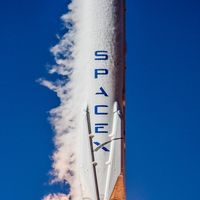The Battle for OpenAI: Musk's $97 Billion Gambit
February 11, 2025, 3:37 pm

Location: United States, District of Columbia, Washington
Employees: 5001-10000
Founded date: 2002
Total raised: $7.53B

Location: United States, Montana, Great Falls
Employees: 1001-5000
Founded date: 1935
Elon Musk is back in the spotlight, this time with a jaw-dropping $97.4 billion bid to acquire OpenAI, the nonprofit he co-founded. This move is not just a financial play; it’s a strategic maneuver in a high-stakes game of artificial intelligence. The bid signals a clash of titans: Musk versus Sam Altman, the current CEO of OpenAI.
Musk’s consortium includes his AI startup xAI, Baron Capital Group, and Emanuel Capital. Together, they aim to thwart OpenAI’s transition from a nonprofit to a for-profit entity. Musk argues that OpenAI has strayed from its original mission of benefiting humanity. He believes it’s time to return to its roots—an open-source, safety-focused organization.
This isn’t just a business deal; it’s a battle for the soul of AI. Musk’s offer has ignited tensions that have simmered since he left OpenAI in 2018. His departure came before the company skyrocketed to fame with ChatGPT. Now, he’s positioning himself as a guardian of ethical AI, while Altman pushes for the capital needed to innovate.
The stakes are enormous. OpenAI was valued at $157 billion in its last funding round, making it one of the most valuable private companies globally. Musk’s bid sets a new benchmark for valuation. If OpenAI’s board considers Musk’s offer, they must justify why they would choose a lower valuation from other investors, like SoftBank, which is eyeing a $40 billion funding round.
Musk’s history with OpenAI is complex. He co-founded the organization with Altman in 2015, aiming to create AI that would benefit humanity. However, as OpenAI began to pivot towards profitability, Musk grew concerned. He filed a lawsuit against Altman and others, claiming they prioritized profit over public good. This legal battle adds another layer of complexity to the current situation.
Altman’s response to Musk’s bid was swift and dismissive. He quipped on X, “No thank you, but we will buy Twitter for $9.74 billion if you want.” This retort underscores the rivalry between the two men. Altman is determined to lead OpenAI into a new era, one that requires substantial funding to develop cutting-edge AI models.
Musk’s motivations are multifaceted. He is a close ally of former President Donald Trump and has invested heavily in Trump’s political endeavors. His recent criticism of a $500 billion AI project led by OpenAI further illustrates his desire to regain control over the narrative surrounding AI development.
The implications of Musk’s bid extend beyond OpenAI. If successful, it could reshape the landscape of AI development. Merging xAI with OpenAI could create a formidable entity, potentially sidelining competitors. However, financing such a massive acquisition poses challenges. Musk’s wealth, primarily tied to Tesla, may not be enough to secure the funds needed. He might have to sell shares or leverage his stakes in other ventures, like SpaceX.
Experts are weighing in on the potential fallout. Rose Chan Loui, executive director of the UCLA Law Center for Philanthropy and Nonprofits, noted that Musk’s bid complicates OpenAI’s fundraising efforts. Jonathan Macey, a Yale Law professor, echoed this sentiment, highlighting the ethical concerns surrounding the nonprofit’s mission.
The situation is fluid. OpenAI’s board faces a critical decision. They must evaluate Musk’s offer against other potential funding sources. If they choose to reject it, they risk alienating stakeholders who may question their commitment to the nonprofit’s original mission.
As the clock ticks, the battle lines are drawn. Musk’s bid is a bold statement, a declaration that he won’t back down in his quest to influence the future of AI. Altman, on the other hand, is steadfast in his vision for OpenAI.
This saga is far from over. The world watches as two of the most influential figures in tech clash over the future of artificial intelligence. Will Musk’s bid succeed, or will Altman prevail in his quest to transform OpenAI into a profit-driven powerhouse?
In the end, this isn’t just about money. It’s about the direction of AI technology and its impact on society. The outcome will resonate far beyond the boardroom, shaping the future of innovation and ethics in the tech world. The stakes are high, and the players are formidable. The battle for OpenAI is just beginning.
Musk’s consortium includes his AI startup xAI, Baron Capital Group, and Emanuel Capital. Together, they aim to thwart OpenAI’s transition from a nonprofit to a for-profit entity. Musk argues that OpenAI has strayed from its original mission of benefiting humanity. He believes it’s time to return to its roots—an open-source, safety-focused organization.
This isn’t just a business deal; it’s a battle for the soul of AI. Musk’s offer has ignited tensions that have simmered since he left OpenAI in 2018. His departure came before the company skyrocketed to fame with ChatGPT. Now, he’s positioning himself as a guardian of ethical AI, while Altman pushes for the capital needed to innovate.
The stakes are enormous. OpenAI was valued at $157 billion in its last funding round, making it one of the most valuable private companies globally. Musk’s bid sets a new benchmark for valuation. If OpenAI’s board considers Musk’s offer, they must justify why they would choose a lower valuation from other investors, like SoftBank, which is eyeing a $40 billion funding round.
Musk’s history with OpenAI is complex. He co-founded the organization with Altman in 2015, aiming to create AI that would benefit humanity. However, as OpenAI began to pivot towards profitability, Musk grew concerned. He filed a lawsuit against Altman and others, claiming they prioritized profit over public good. This legal battle adds another layer of complexity to the current situation.
Altman’s response to Musk’s bid was swift and dismissive. He quipped on X, “No thank you, but we will buy Twitter for $9.74 billion if you want.” This retort underscores the rivalry between the two men. Altman is determined to lead OpenAI into a new era, one that requires substantial funding to develop cutting-edge AI models.
Musk’s motivations are multifaceted. He is a close ally of former President Donald Trump and has invested heavily in Trump’s political endeavors. His recent criticism of a $500 billion AI project led by OpenAI further illustrates his desire to regain control over the narrative surrounding AI development.
The implications of Musk’s bid extend beyond OpenAI. If successful, it could reshape the landscape of AI development. Merging xAI with OpenAI could create a formidable entity, potentially sidelining competitors. However, financing such a massive acquisition poses challenges. Musk’s wealth, primarily tied to Tesla, may not be enough to secure the funds needed. He might have to sell shares or leverage his stakes in other ventures, like SpaceX.
Experts are weighing in on the potential fallout. Rose Chan Loui, executive director of the UCLA Law Center for Philanthropy and Nonprofits, noted that Musk’s bid complicates OpenAI’s fundraising efforts. Jonathan Macey, a Yale Law professor, echoed this sentiment, highlighting the ethical concerns surrounding the nonprofit’s mission.
The situation is fluid. OpenAI’s board faces a critical decision. They must evaluate Musk’s offer against other potential funding sources. If they choose to reject it, they risk alienating stakeholders who may question their commitment to the nonprofit’s original mission.
As the clock ticks, the battle lines are drawn. Musk’s bid is a bold statement, a declaration that he won’t back down in his quest to influence the future of AI. Altman, on the other hand, is steadfast in his vision for OpenAI.
This saga is far from over. The world watches as two of the most influential figures in tech clash over the future of artificial intelligence. Will Musk’s bid succeed, or will Altman prevail in his quest to transform OpenAI into a profit-driven powerhouse?
In the end, this isn’t just about money. It’s about the direction of AI technology and its impact on society. The outcome will resonate far beyond the boardroom, shaping the future of innovation and ethics in the tech world. The stakes are high, and the players are formidable. The battle for OpenAI is just beginning.
